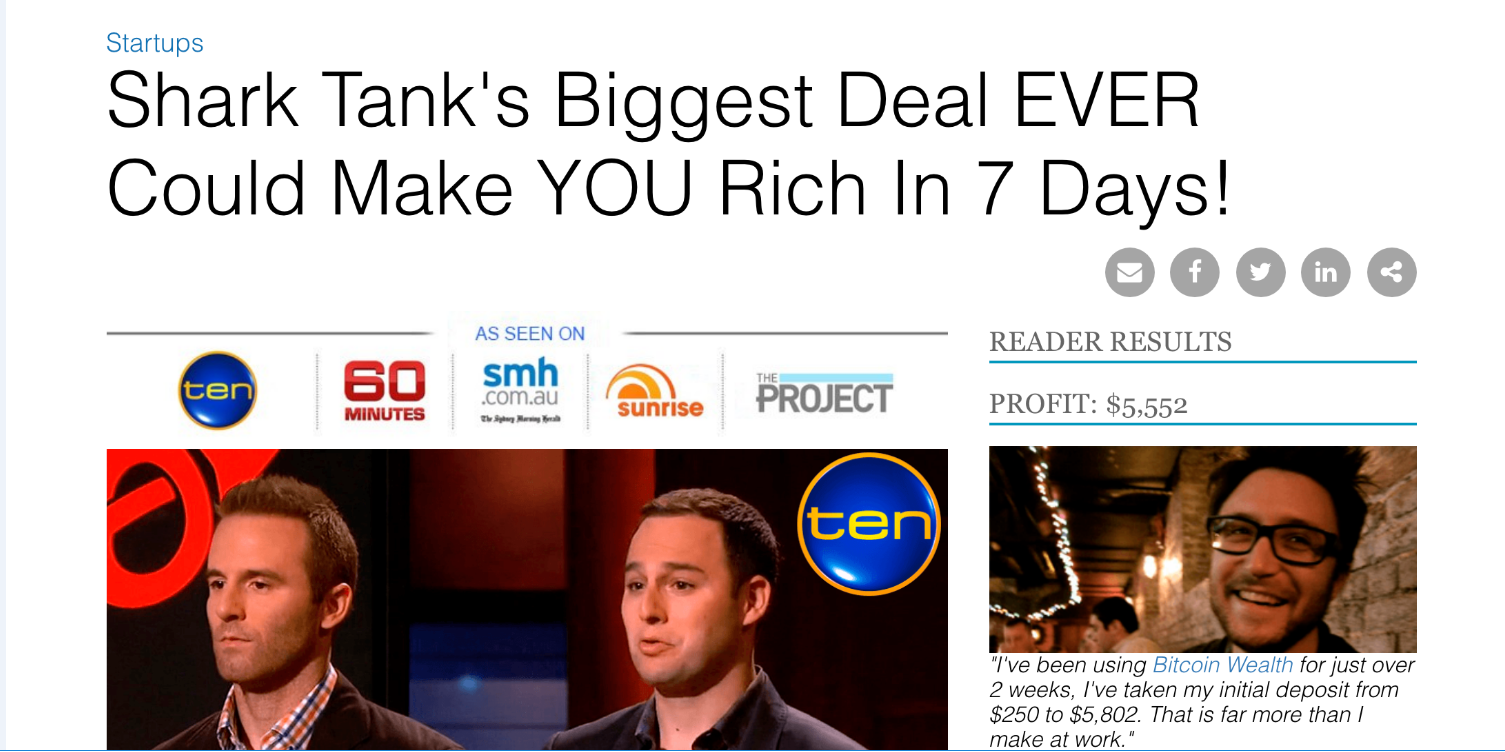People are increasingly being caught out by celebrity endorsement scams, with reports to Scamwatch increasing 400 per cent and losses increasing a staggering 3,800 per cent so far in 2018.
These scams often appear as online advertisements or promotional stories on social media or a seemingly legitimate, trustworthy website. They include fictitious quotes and doctored or out-of-context images of the celebrity, such as presenters from the TV show Shark Tank, promoting a product such as skin care creams, weight loss pills, or investment schemes.
The ACCC’s Scamwatch website has received almost 200 reports in 2018 and losses totalling more than $142 000. People aged 45 and older accounted for 63 per cent of losses to these scams. Women are more likely than men to be a victim.
“The growth in these scams is very concerning, particularly as over half the reports we received included a financial loss. Most people lost between $100 and $500 and in one case, a victim lost more than $50 000 through fake celebrity endorsement of an investment scheme,” ACCC Deputy Chair Delia Rickard said.
The scam works by consumers signing up for a ‘free trial’ for a product. As part of this process, they have to provide their credit card details. The ‘free trial’ however, has strict terms and conditions such as having to return the product within a near impossible timeframe, and an automatically renewing subscription that is difficult to cancel. These terms are often only visible on the document that arrives with the product.
“The groups behind these celebrity endorsement scams are organised and sophisticated fraudsters who are often involved in other scams. It’s easy for them to create fake ads and websites to give credibility to their con, so people need to be very careful and sceptical about ads they read on social media and websites,” Ms Rickard said.
“It is vital to research and read independent reviews of the company. Consumers should verify celebrity endorsement of products from the celebrity’s official website or social media account.”
The ACCC is calling on Google, Facebook and Instagram to do more to crackdown on these fake ads to prevent scammers reaching potential victims.
“Most of the reports to Scamwatch involve these scam advertisements running on Google ad banners or as ads in Facebooks news feeds. These tech giants must do more to quickly suspend ads, as every time consumers click on a scam ad, they are at risk of losing money,” Ms Rickard said.
“If you are caught up in one of these scams, call your bank immediately to try and arrange a chargeback and to stop any further debits to your credit card.”
People can follow @scamwatch_gov on Twitter and subscribe to Scamwatch radar alerts to stay up to date with the latest scams targeting the community.
Background:
Below is a list of celebrities who have been used in celebrity endorsement scams based on reports to Scamwatch from members of the public.
- Cate Blanchett
- Deborah Knight (Nine News Sydney presenter)
- Delta Goodrem
- Dr David Sinclair (Head of Ageing Lab UNSW)
- Dr Oz
- Emma Thompson
- Georgie Gardner (Today Show)
- Jessica Rowe (Studio 10)
- Kyle Sandilands
- Lisa Wilkinson (Ch 10)
- Mark Shuttleworth (BBC/CNN)
- Meghan Markle
- Mikhail Varshavski (Dr Mike – US Celebrity)
- Nicole Kidman
- Oprah
- Sally Field (American actress)
- Sonia Kruger (The Voice, Today Extra)
- Steve Baxter (Shark Tank)
Example of advertisements:






